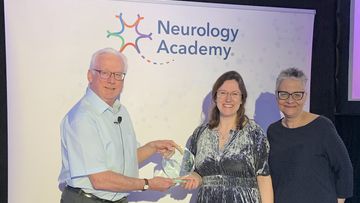Improving the Parkinson’s Liaison Service at Leeds Teaching Hospitals Trust
Background
Leeds Teaching Hospitals Trust (LTHT) is one of the largest acute hospital trusts in Europe. There are approximately 1500 patients with Parkinson’s disease under the care of the Trust and four nurse specialists, four neurologists and two elderly medicine consultants who provide specialist care to these patients.
When patients with Parkinson’s disease get admitted to an acute hospital ward, they are vulnerable to harm and prolonged lengths of stay. This may be due to omitted / delayed medication or complications of being an inpatient such as immobility, falls or constipation. LTHT is divided into two main sites on either side of the city with the Leeds General Infirmary where the neurology department is based and St. James’ University Hospital where the elderly medicine department is based. This division of services and expertise poses additional logistical challenges to the care of patients with Parkinson’s disease.
At present, LTHT has a Parkinson’s liaison service where two of the Parkinson’s disease nurse specialists come across to the St. James’ University Hospital site once a week to see any patients referred to them. We hypothesised that early specialist intervention through expansion of this Parkinson’s disease liaison service across several days and by adding opportunistic reviews could potentially improve patient care, reduce lengths of stay and lead to outpatient clinic appointments being saved or diverted.
Method
As two elderly medicine specialists, we reviewed 27 inpatients with Parkinson’s disease in LTHT over a period of 9 weeks. We designed a proforma to collect data on how our input into their management could have improved their care. Furthermore, we estimated whether our input could have reduced their length of stay, saved or diverted a clinic appointment or potentially prevented any complications that the lack of specialist care had caused. We performed both opportunistic reviews and also saw formal ward referrals.
Results
Two thirds of the patients reviewed were in the complex stage of Parkinson’s disease. 89% of the reviews resulted in recommended intervention, such as medication changes or referral to other specialities. An estimated 70% of patients could have had a reduced length of stay with our input and 74% of the patients could have diverted their next outpatient appointment due to the inpatient review. We also identified some potential harmful complications that patients had experienced as a result of the lack of specialist input; one patient with Parkinson’s disease had been given haloperidol inappropriately and four patients had missed diagnoses including delirium, pneumonia, and postural hypotension.
Discussion
Given that the majority of patients reviewed were in the complex stage of Parkinson’s disease, it is unrealistic to expect non-specialists to manage this challenging cohort of patients unsupported. We have highlighted the potential positive impact that specialist Parkinson’s disease input can have on inpatients at LTHT. Although the data collected is predominantly subjective, the results strongly indicate that there is scope for improving inpatient care. In addition to these benefits for patient care, our data also raises potential financial advantages for the Trust given our predicted reductions in length of stay and better use of clinic time.
Despite these benefits that expanding the Parkinson’s liaison service could bring, there are potential issues with providing specialist care in an acute hospital ward setting. Patients may be too poorly or confused to review from a Parkinson’s disease viewpoint and it is not always appropriate to alter Parkinson’s medications when a patient is acutely unwell. There is also a lack of time to review every single inpatient with Parkinson’s disease in LTHT so we have the dilemma of deciding which patients to prioritise. These are all issues for us to consider as we expand our service.
Future considerations
Our plan going forward is to restructure the Parkinson’s disease liaison service at LTHT so that the nurse specialists and three consultants each have dedicated time to review inpatients with Parkinson’s disease across four days a week. This will hugely increase the number of inpatients that are reviewed on a weekly basis and will allow us to proactively review patients in addition to seeing those that are formally referred. We aim to launch this new liaison service whilst continuing to collect data. Ultimately we hope this will improve patient care for those with Parkinson’s disease in LTHT and do so in a cost-effective manner.
More Parkinson's Academy Service development Projects

'The things you can't get from the books'
Parkinson's Academy, our original and longest running Academy, houses 23 years of inspirational projects, resources, and evidence for improving outcomes for people with Parkinson's. The Academy has a truly collegiate feel and prides itself on delivering 'the things you can't get from books' - a practical learning model which inspires all Neurology Academy courses.